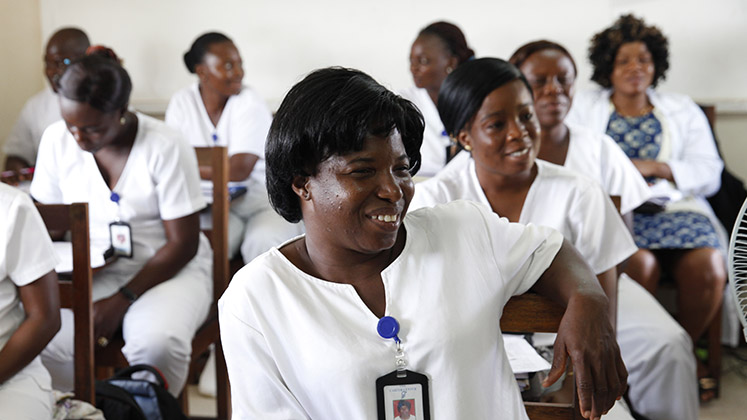New research from the Care Policy and Evaluation Centre (CPEC) and the Department of Social Policy at the London School of Economics and Political Science (LSE) reveals new opportunities for unlocking additional resources for sustainable development in global mental health.
The study was published recently in the British Medical Journal (BMJ) Global Health. It identifies the crucial need for external organisations and individuals in global mental health to coordinate efforts and to use sustainable, ethical approaches in low- and middle-income countries (LMICs).
"Urgent political attention"
The economic pressure many LMIC governments face, and their lack of resources, means that global health often relies on external funding. The evidence-mapping study from CPEC builds an understanding of this external funding landscape to identify where additional resource can be "unlocked".
Valentina Iemmi, who led the research, said: "Mental disorders in LMICs require urgent political attention. They account for a substantial proportion of the overall burden of poor health and high economic cost, and this impact is expected to rise. The United Nations sustainable development goals (SDGs) recommend the mobilisation of additional external funding from a wide range of sources while assuring sustainability through local ownership and a gradual increase in domestic resources. It is therefore important to identify who the key external actors are in global mental health."

Nurses take part in a training programme on child and adolescent mental health in Monrovia, Liberia (Dominic Chávez/World Bank, CC BY-NC-ND 2.0)
"A framework for future policy planning"
To identify these actors, Ms Iemmi created a new typology of external actors in global health. The typology identified a large ecosystem made up of a wide range of external actors who could provide new opportunities and resources for global mental health. External actors identified in the typology came from the public, private, and third sectors as well as partnerships between these sectors.
The typology was used as a framework to map and understand existing evidence. Seventy-nine quantitative and qualitative studies reported information on external organisations or individuals providing financial or in-kind support to mental disorders in LMICs over the past fifteen years. The majority of evidence reviewed as part of the study focused on the public and third sector. Evidence on the private sector and multisector partnerships was found to be scarce.
The typology could provide a helpful framework for future policy planning and research on sustainable development in global mental health and global health more generally.
"Opportunities to engage with a multitude of external actors in global mental health"
To unlock new resources, and achieve a sustainable impact, the paper makes a series of recommendations.
It firstly calls for global coordination involving all actors in global mental health. It recommends the development of a mechanism to coordinate and monitor financial efforts over time.
The paper also calls for partnerships and collaboration to be a priority over the establishment of new organisations, in order to avoid further fragmentation of efforts in global health.
Local ownership and sustainability should be at the centre of funding decisions with a goal to increase domestic spending and coverage.
The paper also recommends that better data be collected, including contributions from all external actors identified in the typology.
The paper’s final recommendation is that ethical considerations should be integrated into decision-making and monitoring processes in all external financing for global mental health.
Commenting on the recommendations, Ms Iemmi said, ‘Unlocking external funding and mobilising untapped resources is possible. However to do this, coordination of efforts across actors is crucial, and the use of a sustainable and ethical approach is a moral imperative. This study presents opportunities to engage with a multitude of external actors in global mental health.’
Behind the article
Sustainable development for global mental health: a typology and systematic evidence mapping of external actors in low-income and middle-income countries by Valentina Iemmi was published by The BMJ Global Health on December 3rd 2019.
The new typology of external actors for global health is available as a separate research and policy tool.
Also available: an infographic providing a visual summary of the publication.